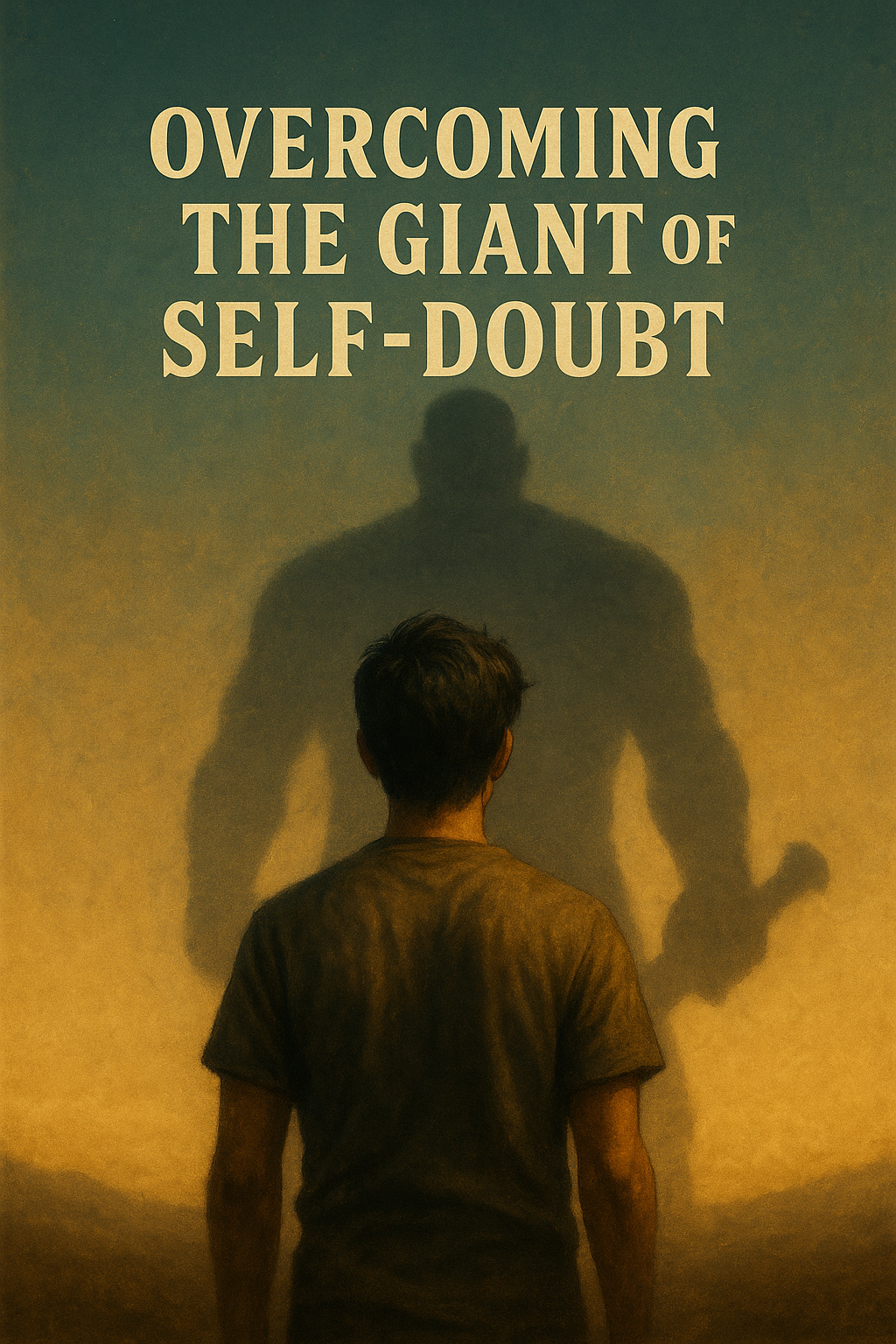Use these prompts to slow down, listen, and begin acting from a deeper place of freedom—not fear.
Section 1: The Echo of the Giant’s Roar
What are some common “background thoughts” that feel like my own voice, but might actually be echoes of fear?
How would my inner dialogue shift if I stopped agreeing with those terms?
Where am I still hearing the roar?
And what would it mean to reject its terms and conditions?
Section 2: What Giants Look Like Today
Without judgment, make a list of the invisible scripts you’ve lived by—at home, at work, or in your inner world.
Which ones may have served a system or expectation more than my actual purpose?
Which ones am I ready to revise?
What have I inherited that feels like truth but might actually be a lie?
Whose voice shaped my internal script?
What am I still trying to prove—and to whom?
Section 3: The Decision to Step Forward
Think about a quiet moment in your life where something internal shifted—where you knew you couldn’t keep going the same way.
What small pivot did I make… or wish I had made? Name it.
Then ask: What would it look like to complete that decision now?
Will I keep rehearsing the fear? Or will I step forward—even if my voice shakes and my hands tremble?
Section 4: The Weight of the Decision
Is there an area in my life where doubling down has become a substitute for clarity or conviction?
What am I protecting—my image, or my actual future?
How might choosing freedom in one area of my life give others around me permission to do the same?
Where in my life have I been doubling down instead of deciding to fight?
What am I protecting—my image or my purpose?
What might change if I fought for freedom, not perfection?
What is fear keeping me from building, from saying, from believing, from becoming?
And if I stay silent— what’s the cost in my story?
Section 5: When the Weapons Change
What scar, setback, or wound in my story once made me feel disqualified—but now helps me lead with greater empathy or insight?
How might that experience become part of my toolkit, not my limitation?
What are my “stones”—the habits, practices, or values that grounded me before success or status arrived?
Am I still carrying them?
What once threatened me?
What name, moment, or memory tried to define my limits?
Now consider:
Could that become part of my toolkit?
Could it be what makes me the kind of leader who sees others more clearly?
Section 6: The Echo After the Roar
What old postures or behaviors am I still carrying—not out of necessity, but out of habit?
What would it look like to walk as someone already free?
What echoes are still shaping how I move through the world today?
What old warnings still whisper when I try to dream again?
Section 7: The Quiet Voice
What swirl—comparison, urgency, or pressure—is currently disrupting my clarity?
What would it mean to tune out that noise long enough to hear the quieter voice beneath it?
What would it look like to create a swirl-resistant culture for the people I lead?
Whose voice am I actually listening to?
Section 8: From Hearing to Heeding
What quiet, purposeful action could I take this week—not to prove anything, but to practice becoming the person I already am?
Choose one act of kindness, creativity, or stillness that reflects who you’re becoming.
Will I live from the voice of fear—or the voice of freedom?
Will I keep chasing my old name—or respond to the new one being whispered even now?
Small steps in freedom are stronger than loud leaps in fear.
Let that line become your anchor.
You don’t have to roar to be brave.
You just have to stop agreeing with the lie—
and start living like the truth is already yours.

